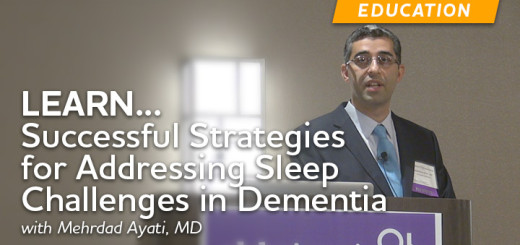Medicare Now Provides Coverage for Critical Alzheimer’s Care and Support Services
For the over five million American living with Alzheimer’s disease and their families, early detection and diagnosis is an important first step to managing their health. Currently, less than half of seniors diagnosed with dementia, or their caregivers, are aware of the diagnosis, even though Medicare covers the process for getting diagnosed.
Why is that? Studies show that one reason doctors don’t disclose the diagnosis of Alzheimer’s or a related dementia, is because of the insufficient time and resources to provide support to patients and caregivers at the time of diagnosis, including a discussion of treatment options and support services.
However, recent developments show promise in addressing this critical gap in care and support. Starting this month, Medicare will reimburse doctors for taking the time to test for dementia, document the diagnosis and discuss care planning with their patients.
Care planning and documentation of a diagnosis are crucial to improving outcomes and quality of care. Care planning allows people to learn about treatment options, enroll in clinical trials and access support services. Studies suggest that care planning can improve the long-term health of caregivers, as well.
Documentation ensures all health care providers know of the diagnosis and can more effectively coordinate care and properly manage other chronic conditions, medications and care transitions.
Among people with Alzheimer’s or a related dementia, over 85% have one or more other chronic conditions. Alzheimer’s complicates the management of these conditions, and thus increases cost. For example, care for a senior with diabetes and Alzheimer’s costs Medicare 81% more than the care for a senior who has diabetes but no Alzheimer’s.
The updates on Medicare coverage would help reduce cost by ensuring that critical steps are taken by health care providers to help families immediately after a diagnosis. This recent development is a result of the HOPE for Alzheimer’s Act (Health Outcomes, Planning and Education for Alzheimer’s Act S. 857 / H.R. 1559).
Specifically, under the Hope for Alzheimer’s Act, Medicare beneficiaries, who are newly diagnosed with Alzheimer’s disease, would receive coverage for comprehensive care planning services for themselves and their caregivers.
In an analysis by former Congressional Budget Office staff, this new legislation is estimated to reduce federal spending by $692 million over the next ten years. Savings would come from reduced hospitalizations and emergency room visits among seniors, and some savings resulting from better medication and other chronic condition management.
Alzheimer’s Association grassroots advocates and staff have held thousands of congressional meetings to secure support for the HOPE for Alzheimer’s Act since the bill’s introduction, and have worked tirelessly to secure support for the benefit at The Centers for Medicare & Medicaid Services (CMS). We will continue to engage CMS to ensure the service’s maximum impact for people living with the disease and their caregivers.
Helpful information related to this post:



















Does Medicare pay for respite care and how do I apply for it
Hi Don, thank you for your question. We sent you more information via email. Please let us know if there is anything else we can help with.
What kind of help and Alzheimer’s patient can get, if she does not have anyone to advocate on her behalf? I am working with a 72 year old woman who lives alone and finds herself lost and confused often times not knowing what to do with herself. Any ideas about resources for someone like her?
Hi Leticia, thank you for your comment. Please contact our Monterey office for helpful information and resources in your area: http://www.alz.org/norcal/in_my_community_contact.asp.
Thank you Alzheimer’s Association for supporting the HOPE act. In my opinion, many families are going to benefit greatly from this act. It surely is a good measure.
We are very appreciative of the hard work of our volunteer advocates across the country who let their legislators know how important care planning is for families with Alzheimer’s and other dementias. If you aren’t already an Alzheimer’s advocate, we encourage you to sign up, to learn what you can do to support Alzheimer’s policy activities: https://www.alz.org/advocacy/take-action.asp.
Does the diagnosis have to be specifically Alzheimer’s, or can it be any form of dementia to qualify for coverage?
Great question, Luanne. The coverage is for individuals with a cognitive impairment, including Alzheimer’s or other dementias.
https://www.alz.org/media/Documents/alzheimers-dementia-medicare-coverage-for-careplanners-ts.pdf